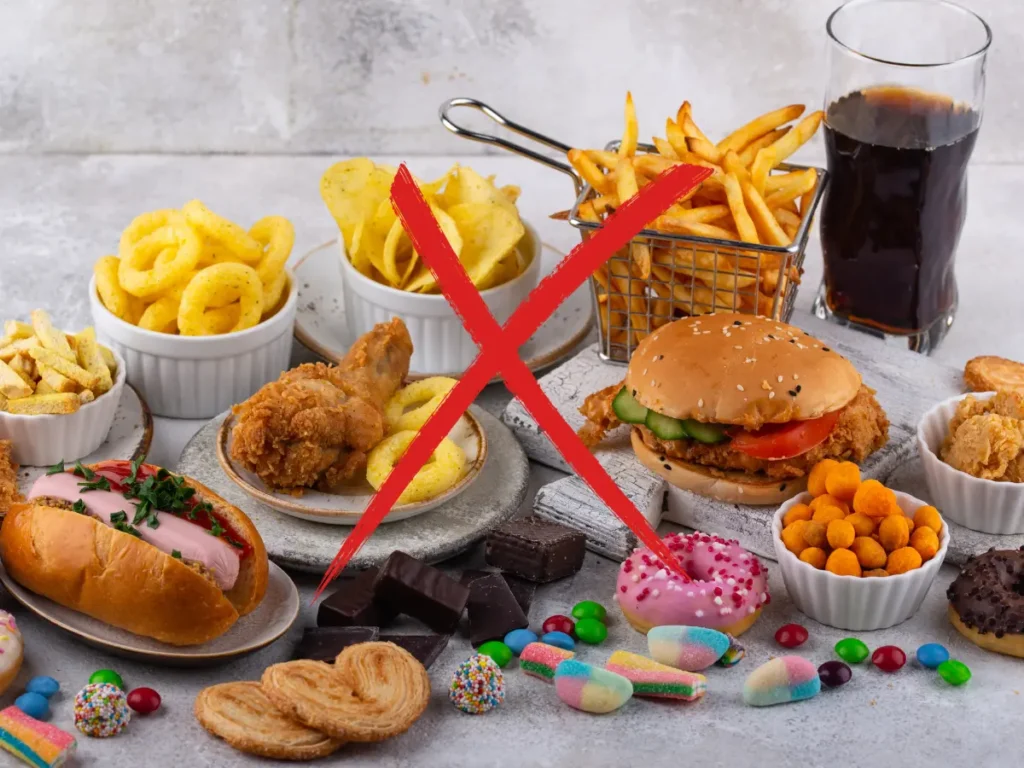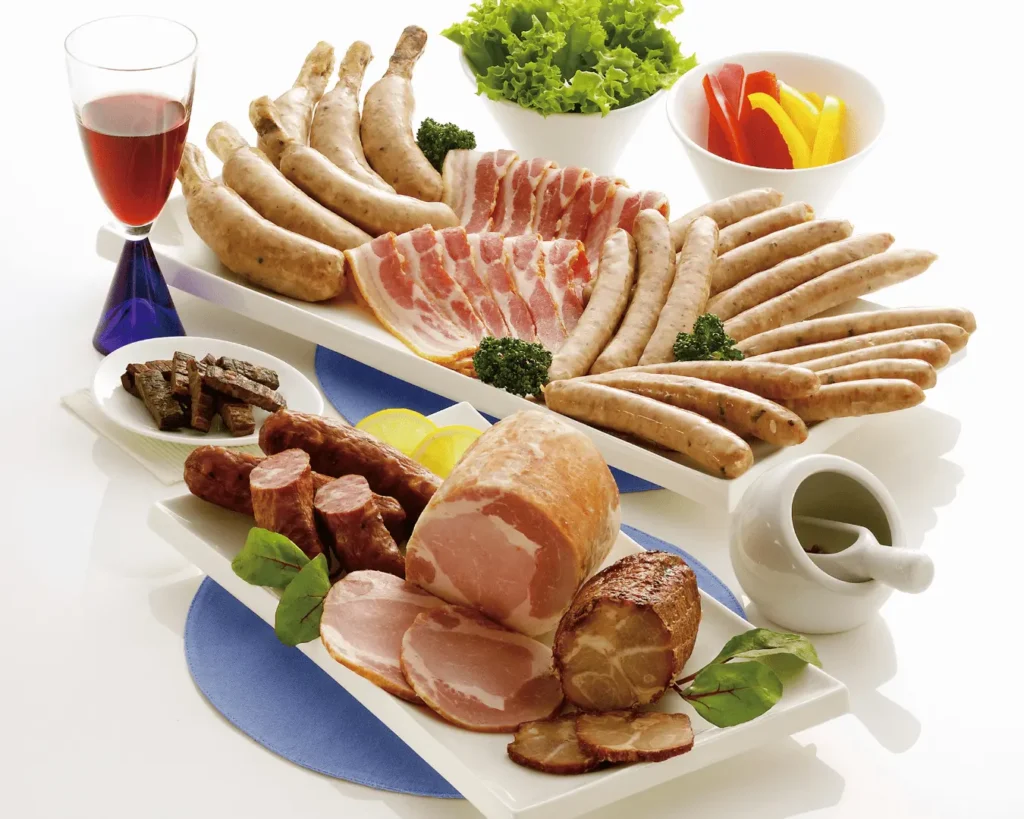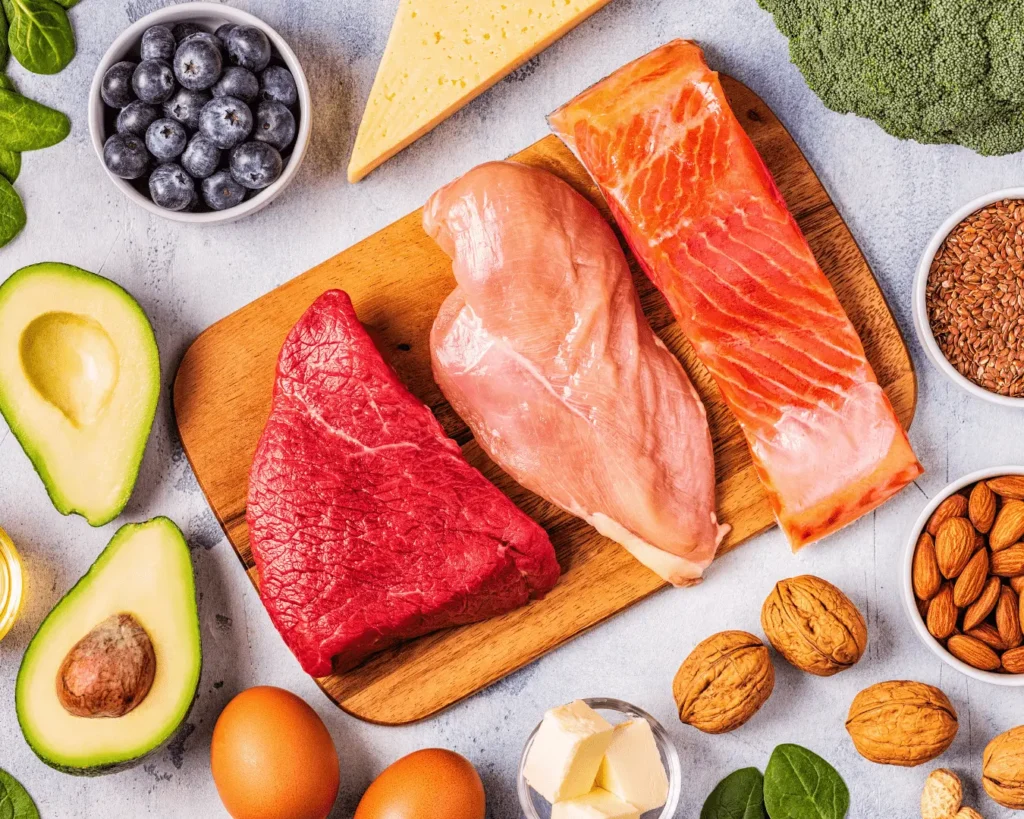
The Quest for a Healthier You: 10 Foods to Avoid After 50

By Aishakeel, 04 November 2023
Our nutritional requirements change as the years roll by and our bodies undergo change. For women aged 50 and above, maintaining good health becomes a priority.
You have to understand that food acts as medicine so good food will make you feel better and vice-versa. The choices we make on our plates can significantly impact our well-being. Delicious food is difficult to resist, but now is the time to consider avoiding certain foods to protect our health and stay away from common age-related illnesses such as hypertension, diabetes, and heart disease.
If you are a woman over 50 and you want to stay on the healthy path, then there are some foods that you absolutely have to avoid. These dietary culprits can have negative effects on your health and vitality in your golden years. So, let’s read on and explore the 10 foods to avoid after 50.
Table of Contents
1. Soda: The Number One Culprit
First and foremost, let’s discuss the detrimental effects of soda consumption, making it the number one item to avoid if you’re over 50 and prioritizing your health. Soda should be at the top of your “Void” list. This carbonated beverage contains high amounts of sugar, which can contribute to the development of diabetes and various other health complications.
Consuming sugary sodas is a known contributor to obesity and diabetes. These beverages are often loaded with high-fructose corn syrup, a sweetener that has established links to obesity. Furthermore, soda consumption has been associated with the onset of type 2 diabetes, attributable to both its sugar content and its impact on the body’s hormonal balance. But what about diet soda? Surprisingly, it might not offer a significantly better alternative. Research has even pointed to a potential connection between artificial sweeteners, commonly found in diet sodas, and increased appetite, greater weight loss challenges, and difficulties in maintaining weight loss.
Drinking soda can weaken your bones. Most sodas contain phosphorous, phosphoric acid and caffeine, agents that are believed to contribute to osteoporosis. Experts also worry that people consume soda in place of milk or other healthy drinks, depriving the bones of calcium.
Soda can harm your major organs. Research has demonstrated that increased soft drink consumption may be linked to chronic kidney disease, development of metabolic syndrome (a group of symptoms that add up to increased heart risk), and fatty liver, a chronic liver disease.
Regularly consuming soda elevates your risk of heart disease and stroke. The American Diabetes Association advises limiting sugar intake to less than 10 percent of your total daily caloric intake – for men, this equates to approximately 50 grams, while women should aim for around 40 grams. To put it into perspective, if your daily calorie consumption is 2,000, which is typical for most individuals, no more than 200 of those calories should originate from sugar.
Most people consume way more than this limit. Not only does soda contribute to weight gain due to its high sugar content, but it also contains artificial ingredients that can make your skin appear older and lack luster. Furthermore, soda fails to provide proper hydration and, in fact, can dehydrate you.
If you seek a healthier substitute for soda, consider drinking water infused with lemon or lime for a refreshing twist. Alternatively, you can create your own nutritious soda by mixing real fruit juice with sparkling water.
2. Fast Food
Next on the list is fast food, which is detrimental to everyone’s health, but particularly concerning for those over 50. As our bodies undergo changes with age, our nutritional needs evolve as well.
Here are several compelling reasons why reducing fast food intake is crucial for women over 50 who strive to maintain good health:
High Caloric Content
Fast food meals can easily exceed 1,000 calories on average. Such excessive calorie intake can contribute to weight gain and associated health issues.
Saturated Fats and Cholesterol
Fast food is notorious for containing high levels of saturated fats and cholesterol. These components have the potential to clog arteries, leading to the development of heart disease.
Sodium Overload
Fast food often contains excessive amounts of sodium, which can elevate blood pressure. This poses a significant risk for older adults who may already be susceptible to hypertension or high blood pressure.
Lack of Essential Nutrients
Fast food generally lacks the essential nutrients crucial for maintaining good health as one ages. Vital elements like fiber, vitamins, minerals, and antioxidants found abundantly in fresh fruits and vegetables are notably absent from fast food offerings.
So, when you’re craving a quick and convenient meal, it’s wise to reconsider your options. Opt for home-cooked meals, or choose healthier alternatives that provide essential nutrients without the health risks associated with fast food.
3. Processed Meats: Proceed with Caution

Number three on the list is processed meats. If you’re over 50 and aiming to maintain good health, processed meats should be strongly avoided. This category includes sausages, hot dogs, and deli meats, which tend to be high in saturated fats and sodium. Furthermore, these processed meats contain nitrates, which are added as preservatives but have been associated with an elevated risk of cancer.
To introduce protein into your diet without the negative consequences mentioned, consider replacing processed meats with lean cuts of fresh meat, such as chicken breasts or fish. Enhance your meals by incorporating fresh vegetables, fruits, beans, and whole grains. These nutrient-rich alternatives offer a healthier balance.
While processed meats may appear convenient for quick meals or when time is limited, they often contain high amounts of sugar. This additional factor increases the likelihood of developing heart disease and diabetes. Opting for whole, unprocessed foods will provide you with the necessary nutrients while minimizing the risks associated with processed meats.
4. White Bread and Pasta: Spikes and drops the Blood Sugar
Now, let’s turn our attention to number four: white bread and pasta. These items are staple food in most cuisines, known for their versatility. However, these foods impact your health as you age.
White bread and pasta rank high on the glycemic index, meaning they cause rapid spikes in blood sugar levels followed by quick drops. Eating these foods can leave you feeling hungry shortly after, and you end up eating more to combat this constant hunger.
Moreover, white bread has been linked to elevated cholesterol levels over time. Choosing whole grains, such as brown rice or quinoa, proves to be a better choice compared to processed counterparts like white flour or refined grains. Whole grains have a lower glycemic index, meaning they don’t cause significant fluctuations in blood sugar levels. Additionally, they have a reduced impact on risk factors associated with heart disease, such as high cholesterol levels.
By making the switch to whole grains, you can mitigate the negative effects of white bread and pasta. Whole grains provide sustained energy, keep you feeling satiated, and contribute to better heart health. So, when faced with the choice, opt for nutritious alternatives that offer a lower glycemic impact and a decreased likelihood of contributing to heart disease risk factors.
5.The Dairy Dilemma
Similar to other aspects of our physiology, the digestive system undergoes changes as we age. The rate at which the body processes food tends to slow down, resulting in increased water absorption from food waste.
The presence of lactose in many dairy products can exert additional stress on the digestive system. These alterations can manifest as digestive discomfort, including issues like constipation, bloating, or diarrhea. If you’re experiencing such digestive challenges, increasing your dairy intake can make your symptoms worse. Opt for lactose-free dairy products and consider discussing your dairy consumption with a healthcare professional for personalized advice.
Dairy products, particularly those with added sugar, are known for their high calcium and protein content, which are essential for maintaining healthy bones. However, it’s important to be aware that many dairy products also contain additional sugar. This becomes a significant health concern, especially for individuals aged 50 and above.
To avoid this issue, it is crucial to carefully read the ingredients list on your dairy products. If you come across any form of sugar, such as corn syrup or evaporated cane juice, it’s best to skip those options and look for alternatives without added sugars. An excellent choice is unsweetened almond milk, which offers a light and creamy texture without the excessive sugar content.
Furthermore, consider incorporating calcium-rich dark leafy greens like spinach or kale into your diet. These vegetables provide the necessary nutrients to maintain strong bones while allowing you to steer clear of dairy products that contain added sugars.
6. Red Meat Reality
Grain-fed red meat has often been associated with negative health effects, but it’s important to understand that not all red meats are the same. There’s a significant distinction between grain-fed and grass-fed red meats, so there’s no need to give up steak just yet.
Red meat, in general, has been linked to heart disease and cancer, but grain-fed red meat has shown to be particularly concerning compared to other types. The issue lies in the fact that grain-fed cows are often given antibiotics and hormones, which can increase the likelihood of their meat containing bacteria and carcinogens.
Red meat contains a compound called carnitine, which is bad for the heart. During digestion, the microbes in the gastrointestinal tract turn carnitine into trimethylamine N-oxide. This can harden the arteries and lead to plaque buildup. As a result, there is a higher risk of heart attack, stroke and developing cancer.
On the other hand, grass-fed beef contains lower levels of saturated fat and cholesterol compared to grain-fed beef. This is because grass-fed cows consume their natural diet of grass. As a result, grass-fed beef has been found to have higher levels of beneficial nutrients, such as Vitamin A, E, and other antioxidants, in comparison to grain-fed beef.
So, the next time you’re craving a succulent steak, opt for grass-fed beef to enjoy your meal with peace of mind, knowing it’s a healthier choice.
7. Low-Fat or Fat-Free Foods: Not Always a Wise Choice

The popularity of low-fat or fat-free processed foods has surged in recent times, but it’s important to understand that they may not be beneficial for your body. Processed low-fat foods often compensate for the reduction in fat by increasing the sugar content, making them significant contributors to chronic diseases like obesity and diabetes.
Moreover, since these foods are typically made from refined flours and sugars, they lack essential nutrients such as protein and fiber, leaving you with a high intake of empty calories. Another drawback is that the removal of fat from certain foods, such as cheese or chocolate, results in the loss of vital nutrients. For instance, cheese is naturally rich in vitamin B12, calcium, and potassium, nutrients that are essential for maintaining good health as you age.
When you come across low-fat or fat-free options, take a moment to scrutinize the ingredients list and nutritional content. You might find that the full-fat versions, consumed in moderation, are a better choice for your health.
8. Fried Foods: A Tempting but Risky Delight
Fried foods undoubtedly offer a delightful taste, but they are far from being healthy.
Fried fare is typically high in trans fats, hydrogenated oils, and tropical oils, which raise cholesterol and are linked to heart disease, diabetes, and cancer.
Furthermore, fried foods can contribute to weight gain and obesity due to their calorie-dense nature. Compared to alternatives like baked or grilled foods, they are significantly less healthy.
Fortunately, there are numerous other enjoyable ways to savor your favorite fried dishes without encountering these drawbacks. Consider exploring alternative cooking methods such as baking or utilizing an air fryer, which eliminates the need for excessive oil used in traditional frying. These methods allow you to achieve a similar crispy texture and delicious taste without compromising your health.
9. Refined Grains: Empty Calories and Minimal Nutrition
Rounding out our list at number nine are refined grains. Refined grains are a group of foods that you should consider restricting or avoiding if you’re over 50 and aiming for good health. These grains undergo processing that involves removing the fiber-rich bran, which is the outer layer, and the germ, which contains numerous nutrients. The resulting refined flour is then used in various products like bread, pasta, breakfast cereals, and baked goods.
Due to this refining process, refined grains offer minimal nutritional value while contributing significant amounts of carbohydrates and sugar to your diet. They lack essential nutrients found in whole grains, making them a less favorable choice for maintaining a healthy lifestyle.
10. Excess Sodium: The Silent Culprit
Last but not least, excessive sodium intake is a concern, as sodium is a mineral required by the body in small amounts. However, consuming too much sodium can raise blood pressure and increase the risk of heart disease and stroke.
As you age, it becomes increasingly important to make dietary adjustments, with a particular focus on reducing sodium intake. The following guidelines can effectively help to decrease your chances of developing high blood pressure. If you are already dealing with high blood pressure, then these steps can help in lowering blood pressure levels.
- Cut down or eliminate the use of salt when preparing meals and during dining. Instead, explore alternatives for flavoring such as black pepper, herbs, and spices. Your taste buds will adapt to the change within a couple of weeks.
- Steer clear of excessive consumption of processed foods, which contribute significantly to our sodium intake. These include items like bread, pies, canned soups and vegetables, sausages, baked beans, pizzas, stews, fast food meals with side sauces, cheese sauces, frozen dinners, and various condiments.
- Whenever possible, prepare meals from scratch using fresh and frozen ingredients. Opt for homemade bread, pies, casseroles, fresh meat, and products with no added salt.
- For snacks, consider unsalted nuts or homemade fruit bars as they serve as healthy, low-sodium options.
- Be selective about foods that are low in salt. While shopping, check the nutrition labels, and aim for products containing less than 1.5 grams of salt (0.6 grams of sodium) per 100 grams.
Excessive sodium intake is a concern, as sodium is a mineral required by the body in small amounts. However, consuming too much sodium can raise blood pressure and increase the risk of heart disease and stroke.
The Institute of Medicine recommends that adults limit their sodium intake to no more than 2,300 milligrams per day. Unfortunately, most Americans consume between 3,400 to 4,700 milligrams daily, as reported by the Centers for Disease Control and Prevention (CDC). Excess sodium often originates from processed foods such as.
A Healthier You: The Journey Continues
We hope this list of foods to avoid after 50 has provided you with ideas on how to make healthier dietary choices. Additionally, we encourage you to watch our video on the recommended foods to consume if you’re over 50. These foods are essential for maintaining a healthy and vibrant lifestyle.
Remember that your diet plays a pivotal role in your overall well-being, especially as you age. By making mindful choices and being aware of the foods to avoid, you can better protect your health and enjoy a fulfilling and vibrant life. Please subscribe to our channel and like the video if you found it helpful. Stay tuned for our next video, where we’ll explore more ways to enhance your health and well-being.
FAQs
Yes, it’s advisable to avoid soda if you’re over 50. Soda is high in sugar and phosphoric acid, contributing to diabetes, heart disease, and bone issues. It’s best to opt for healthier beverage alternatives.
Limiting fast food is crucial for those over 50 because it’s often high in calories, saturated fats, cholesterol, sodium, and lacks essential nutrients. These factors can contribute to weight gain and heart issues.
Processed meats, like sausages and deli meats, are high in saturated fats, sodium, and nitrates, which are linked to cancer risk. Replacing them with lean, unprocessed alternatives is a healthier choice.
White bread and pasta have a high glycemic index, causing rapid blood sugar spikes and crashes. They leave you feeling hungry and can contribute to elevated cholesterol levels. Whole grains are a better choice.
Not necessarily. Some dairy products with added sugar can be problematic. It’s essential to check labels and choose options without added sugars. Calcium-rich vegetables like kale are excellent alternatives.
Grain-fed red meat may contain antibiotics and hormones, increasing cancer risks. Grass-fed red meat is a healthier option, being lower in saturated fat and richer in beneficial nutrients.
Not always. These foods often compensate for reduced fat with added sugars, contributing to obesity and diabetes. Additionally, they lack essential nutrients found in full-fat versions.
Fried foods are calorie-dense and high in fat and salt, contributing to weight gain and health issues. Using alternative cooking methods, like baking or air frying, can provide a healthier indulgence.
Refined grains lack essential nutrients and are high in carbohydrates and sugar. They provide minimal nutritional value. Opt for whole grains to maintain a healthy lifestyle.
Excess sodium can raise blood pressure and increase the risk of heart disease and stroke. To protect your health, it’s essential to limit sodium intake, especially from processed foods.
